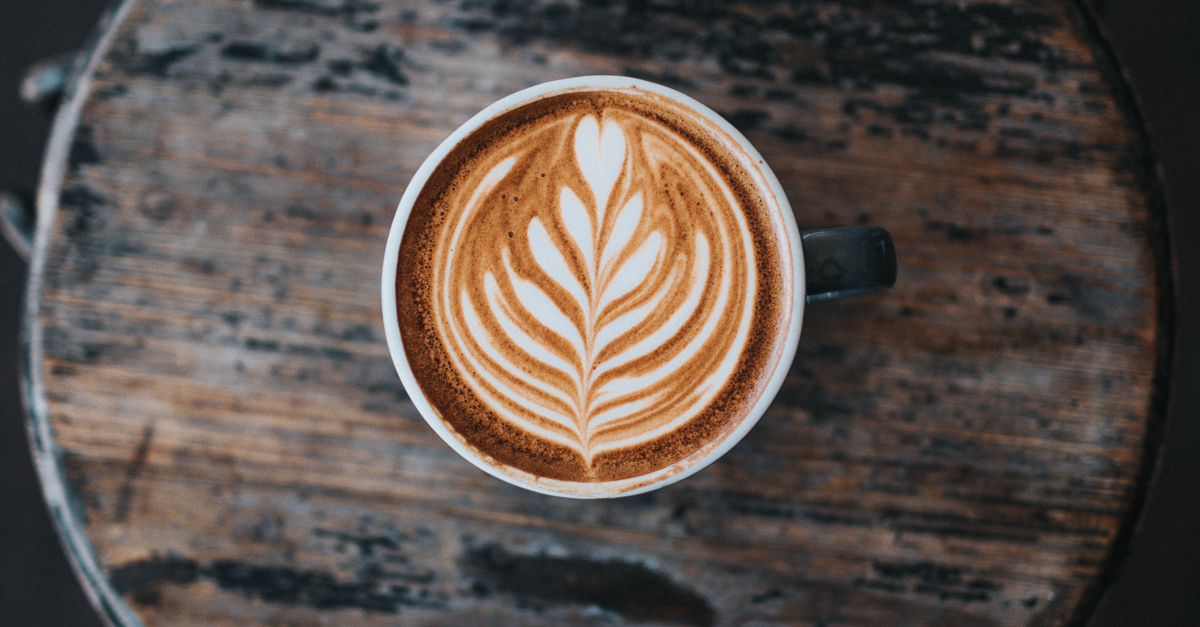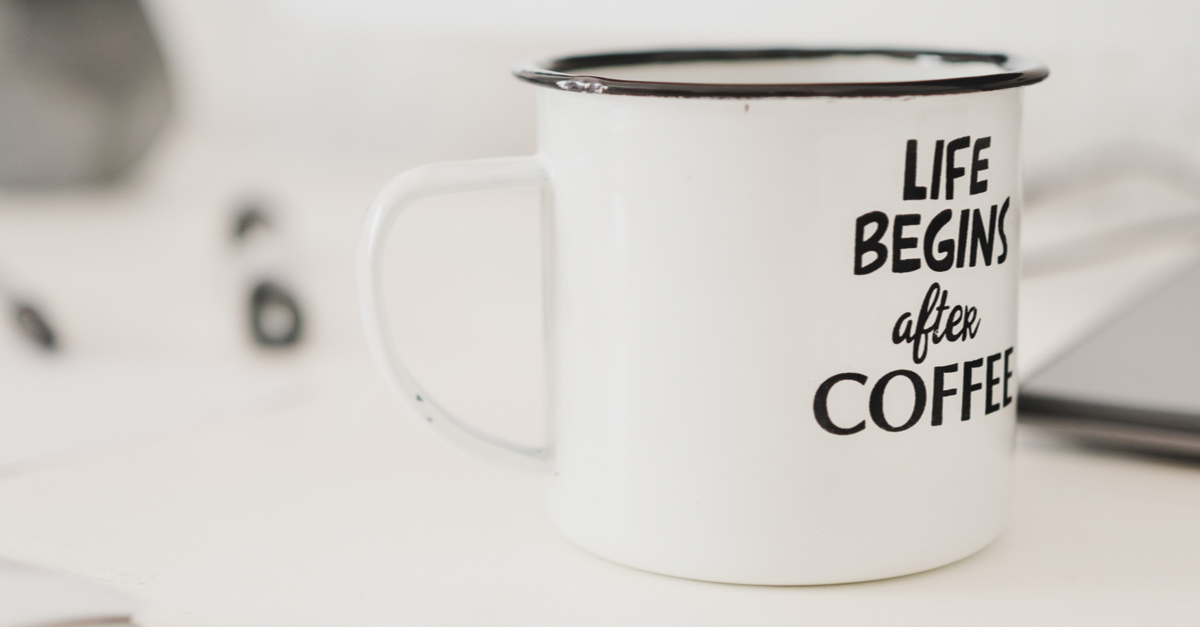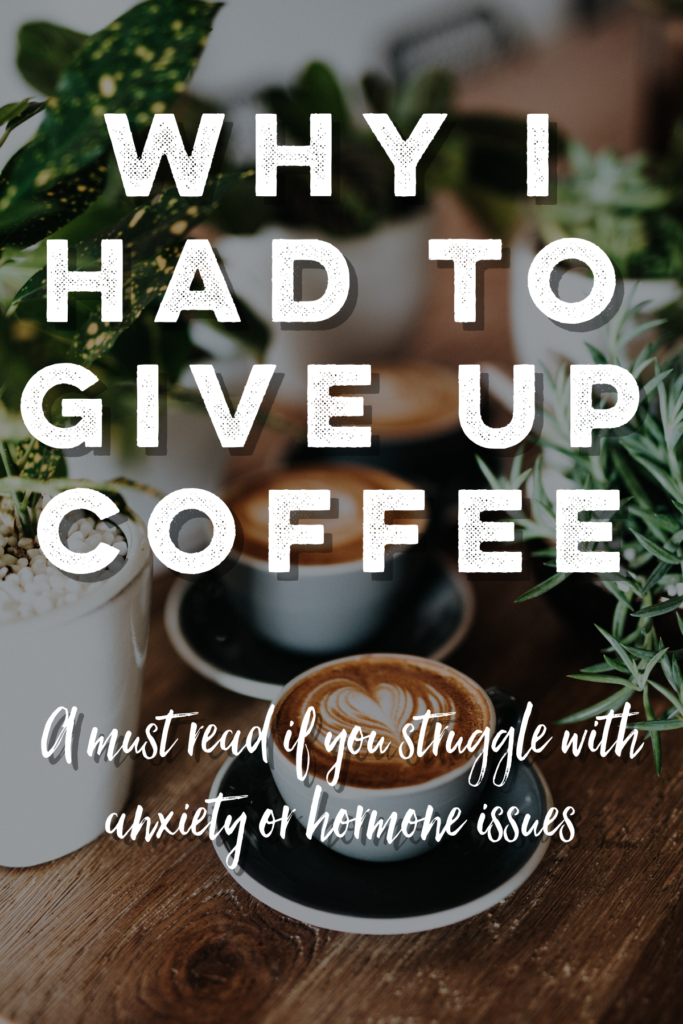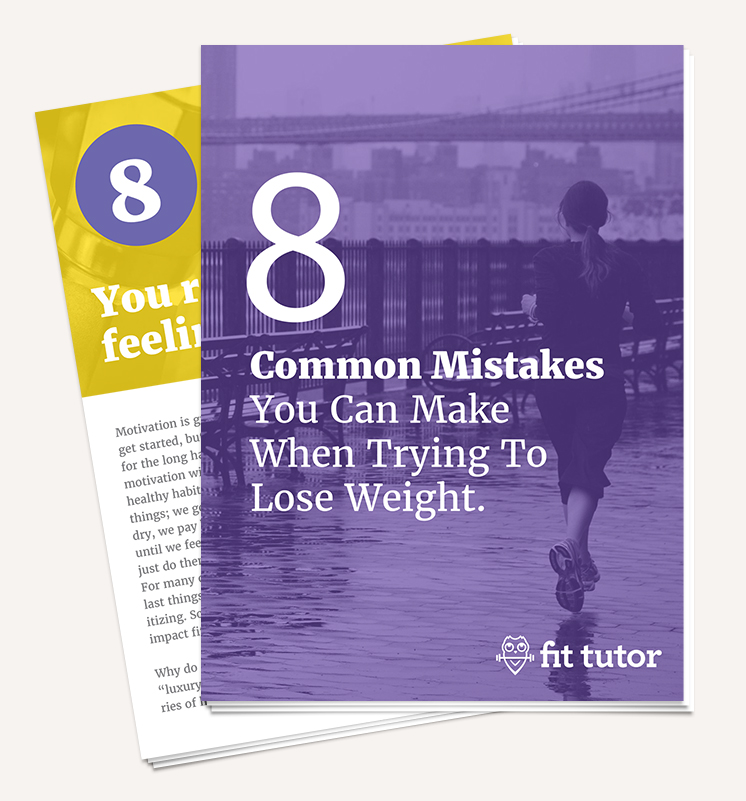Recently, I posted a status on Facebook asking people to send sympathy cards because it had been 2 months since I gave up coffee. It surprisingly got a huge response, so I thought I’d write about it to answer everyone’s questions. I know many of you are reading this freaking out that you, too, may have to give up this amazing drink that is obviously poured straight from heaven — but you can relax. I’m not here to claim that coffee is bad and you shouldn’t drink it; in fact, I’ve declared the opposite is true! However, it’s not healthy for everyone, and I unfortunately, drew the short end of the stick.
And honestly, I’m still waiting on those sympathy cards! Drinking coffee was a sacred time in my day; it was comforting, warming, filling, energizing, and a time to pause and breathe. It was more than just a drink, and I always swore I would never give it up. I hilariously took pride in the fact that I could drink it black and preferred the taste. I miss it, but giving it up hasn’t been as traumatic as I thought! Let’s start on a positive note with all of coffee’s benefits.

I thought Coffee was Healthy?
Here are the benefits of drinking coffee:
- It contains important nutrients like vitamins B2 and B5, Manganese, Potassium, Magnesium, and Niacin.
- It contains antioxidants, which fight inflammation, free radicals, and aging!
- Drinking coffee has been linked to lowering your risk for certain diseases, like Depression, Alzheimer’s, Parkinson’s, Heart Disease, Stroke, certain cancers, etc.
- It improves your brain function, logical reasoning, memory, reaction time, and vigilance.
- Caffeine in coffee can increase your metabolism, burn fat, and improve physical performance.
- It is associated with improved liver function.
- Drinking coffee is also linked with a lower risk of death!
After reading this list, I’m sure you’re brewing a pot right now. With all of these benefits, why would someone stop drinking coffee for health reasons?
Why I Quit Drinking Coffee
I’m elaborating on the factors that led me to my decision; however there are many other reasons someone may want to give up coffee. And of course, these won’t apply to everyone.
Stress
Well, just to put all my mess out there, I developed high anxiety and unhealthy work habits as a teacher. The fact that the work was never finished and there was constant conflict made me anxious and always on the clock. In short, my stress hormones were out of control and my 24 hour daily rhythm was confused by the constant flow of caffeine and anxiety.
Although I left the classroom in 2012, this mindset (and accompanying physical response) has been challenging to break. I’m slowly but surely winning my battle against anxiety, but coffee wasn’t on my side.
Studies have shown that caffeine increases the stress hormones cortisol and epinephrine (adrenaline) at rest, and cortisol levels after caffeine consumption are similar to those during acute stress (source). Since coffee increases the body’s stress response and releases these stress hormones, it only makes sense that someone who struggles with anxiety would cut back, or cut out, their coffee habit.
Many have asked if I felt like coffee made me anxious. It helped me be alert, but it also made me very tense. I got a lot done, but it was almost panicky productivity, if that makes sense. I would need it to be friendly, and I would need it to function. Clearly, these are signs that my body wasn’t functioning as it should be, and my consumption should be addressed.
A note to anyone who can relate to this, I promise quitting coffee wasn’t as terrible as I’d thought it would be.

Hormone Imbalances
I also was diagnosed with PMDD (premenstrual dysphoric disorder) and a uterine fibroid last year. Woo hoo, right?! I didn’t understand what was happening to my body- why was it sabotaging me, despite all of my healthy habits? I haven’t done much research on PMDD, but from what I understand it’s connected to estrogen and progesterone, as in an imbalance in the relationship or a possible oversensitivity to certain sex hormones. Fibroids are also connected to abnormally high estrogen levels. Many women suffer from PMS, which some suggest is also linked with too much estrogen.
Coffee (caffeine) is linked to increased estrogen levels. If I’m suffering from high estrogen (or an imbalance between estrogen and progesterone) then why would I continue to consume something that is potentially contributing to the problem? My fibroid is tiny, but painful. If I’m not careful it can grow, and I could potentially need surgery or a hysterectomy. Yes, giving up coffee is hard, but most definitely the lesser of two evils.
If you feel like this describes you, I’d recommend researching “Estrogen Dominance” + I benefitted greatly from reading the book Woman Code,* by Alisa Vitti.
I’ve Got the Gene… Probably
Researchers have identified a “caffeine gene” that can affect how you process caffeine. Some people process it quickly, which means a cup of coffee can wake them up while giving them the health benefits, like antioxidants, without the harmful effects of caffeine. They process and eliminate the caffeine quickly, so there’s no ill effects.
Other “slow metabolizers” cannot process caffeine as quickly, extending the half-life in the body. Many of coffee’s health benefits mentioned above may not even apply to these slow metabolizers. In fact, chances of heart attack may be increased for this group.
Although I have’t been officially tested, caffeine wasn’t making me feel good, although it helped me function and kept me out of jail! I felt like my body showed a lot of signs that the caffeine was sticking around too long: I was mentally and physically tense all day, had trouble sleeping, and I felt like my blood pressure rose after each cup. My eyes would be tired but my brain racing, and my fight or flight reflex seemed like it was always a little too ready…
Isn’t it funny that something made me feel this way, but it also made me feel like I was drinking a hug in a cup? It was a tough decision, but as you can see, for the best. If you are intrigued by this gene, it’s called CYP1A2 if you want to look it up, although other researchers claim it’s more genetic factors than that alone.
And I’m a Woman
Some even argue that all women are slow metabolizers. Research also shows that caffeine’s half-life is increased in both pre-menopausal women and women taking oral contraceptives, again connecting estrogen and caffeine. Estrogen is processed in the liver through the same (competing) pathway as caffeine, which could potentially affect both estrogen and caffeine levels in certain women.
Other Helpful Reasons
Although coffee has shown to help ward off Type 2 Diabetes, other studies are showing that might not true for everyone, especially slow metabolizers, people with a diet high in carbohydrates, people with pre-diabetes or metabolic disease, and potentially chronic caffeine consumers. Yikes. A caffeine habit can increase insulin resistance, which can affect metabolism and even lead to an imbalance in neurotransmitters (potentially resulting in mood disorders). Insulin resistance can also contribute to inflammation, and if you’re stressed, you’re already dealing with inflammation. Better step away from the French press.
Coffee can also affect your body’s absorption of certain minerals and cause deficiencies. Your absorption of B Vitamins, Iron, and Magnesium could be impaired. I recently shared about my issues with food sensitivities and inflammation, so I need to be treating my body with respect and giving it the best chance to absorb all the nutrients I’m giving it.
Do you guys remember when I moved to Portland and had to give up gluten, dairy, and coffee? I do. Too soon.
Unfiltered Coffee and Cholesterol
It’s worth mentioning that studies show that drinking unfiltered coffee (like French press, Turkish coffee, and espresso) can potentially raise LDL (bad) cholesterol and total serum cholesterol levels. The reason is they contain higher levels of compounds called deterpines, and these are typically removed through the use of a paper filter. Just something to consider if you’re trying to lower your cholesterol; you could switch to a Chemex, which is my personal favorite anyway!
The Takeaway
So you can see, although coffee boasts a lot of health benefits, those benefits might not outweigh the cons for some people. Ever since I posted that Facebook status I’ve received several messages with people feeling like it’s bad for them, but they can’t seem to give it up. I’ve also been encountering more clients with estrogen imbalances, and I think this information is important to help you make a healthy decision for your body.
If you feel like it’s negatively affecting your life or body, try to take a week or two off and see how you feel. For me, feeling better has been a strong enough motivator to stick to my decision, even though I was clearly physically and psychologically addicted. You won’t know until you try.
How I Gave Up Coffee
Speaking of trying… that’s my next post, so stay tuned and I’ll share how I managed to give up coffee and not kill anyone or sleep all day.
And, because I’m sure you’re wondering, an 8-ounce cup of brewed coffee can contain anywhere from 75 to 165 milligrams of caffeine. A cup of decaf coffee contains an average of 2 to 7 milligrams per cup, which explains why some extremely sensitive people still react to decaf.
Each topic here could be it’s own 100 page essay, friend. I’m barely scratching the surface but I’m hoping you’ll have enough to go on to research what might be happening in your own body if you feel like coffee is your frenemy.
Best of Luck!
*this is an amazon affiliate link. If you purchase through my link I’ll get a little commission at no extra cost to you! Thanks for helping my build my small biz!



Comments are closed.